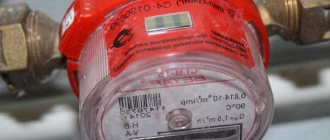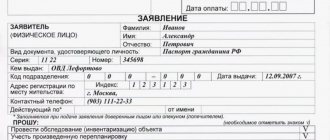Where can I get a medical examination and how much does it cost?
The medical examination can be done in both public and private clinics. In the first case, it’s free, but most likely there will be queues and two or three days in advance; in the second - for a fee, but for one day.
It is better to check with the employer in advance whether a medical examination certificate from a specific paid clinic is suitable. In addition, you need to find out the list of doctors you need to visit. The organization has the right not to pay for specialists that the employee underwent on his own initiative, for example, due to health problems.
Main expenses for medical examination:
Registration of a medical record - 600-800 ₽.
Passing a medical examination (specialized doctors, tests, diagnostics) - from 2000 ₽ depending on the city and clinic.
Additionally, if a psychiatric examination is needed, it costs from 1000 ₽.
- surgeon;
- narcologist;
- cardiologist;
- Laura;
- ophthalmologist
How to avoid paying utility bills
In order not to pay utility bills if a person is registered but does not live, citizens use several methods proven by life and practice:
- First of all, housing should be equipped with meters for consumed services. With this approach, if we take payment for water as an example, charges will be made taking into account actual consumption, confirmed by meter readings. If no one lives in the apartment, therefore, services are not consumed. Consequently, meter readings will confirm zero water consumption, and the supplier will not issue invoices for payment. There is nothing to pay.
- If there are no metering devices, the owner of the residential premises should submit a written application to the supplier, notifying that there are no residents in the apartment. Consequently, no utilities are consumed. Based on such a request, water supply, gas supply, and sewerage will be blocked. True, you will have to submit a certificate that reliably confirms state registration or the fact that the owner lives in another locality or at another address. Without official papers, proving the fact of non-residence will be quite problematic.
- Turn off the meter and turn off household electrical appliances. Report the decision to the electricity supply organization in order to avoid misunderstandings if one of your neighbors tries to illegally connect to the meter.
- Rent out housing by concluding a written agreement, under the terms of which the responsibility for paying utility bills is transferred to tenants who are not the owners. This is the only way not to pay rent.
Expert opinion
Klimov Yaroslav
More than 12 years in real estate, higher legal education (Russian Academy of Justice)
Ask a Question
If the measures taken do not result in relief from paying utility bills, legal action should be filed. However, before deciding to take such a step, it is recommended to consult a lawyer who specializes in housing issues. It is important to remember that under no circumstances will you be able to reduce your rent.
What documents are needed for a medical examination?
For your medical examination you need to take:
Passport.
SNILS.
Referral from the employer for a medical examination in accordance with the order of the Ministry of Health.
The result of fluorography or x-ray of the chest organs is valid for up to 10 months. If they are not there, you need to do an examination during a medical examination.
Women over 40 years old - mammography. Its validity period is 11.5 months. If there are no test results, it can be done during a medical examination.
Extracts or opinions of specialists on chronic diseases - if available.
What utilities do I need to pay for?
The general concept of public services is understood as the provision of certain services that are used by residents of the premises, namely:
- Water supply services: cold and hot water;
- sewerage (water disposal);
- electricity supply services;
- Gas supply services, if such a resource is used;
- Heating services in winter;
- Solid waste removal services;
- Elevator operation.
You also need to pay for the maintenance of the entire house:
- current repairs of common areas;
- cleaning stairs, elevators, areas near apartments;
- maintenance of intercom and entrance doors;
- maintenance of general building communications;
- cleaning the local area;
- roof maintenance and repair;
- other similar works.
Payment is made to the accounts of resource or service providers at tariffs established by the state. All residents, without exception, are required to pay, and the rates do not depend on who is the owner of the property.
The list of utility services is approved by Article 154 of the Housing Code of the Russian Federation.
If there is an HOA in the house, then most likely the residents are obliged to pay the labor of the employees of this organization. For this purpose, mandatory contributions in a certain amount are introduced.
Who pays for the medical examination?
All medical examinations are carried out at the expense of the employer; the employee himself does not pay for the medical examination. However, some enterprises and companies act cunningly - they do not formalize the employment relationship (or do not renew the contract if, for example, it is urgent) with their employee until he passes a medical examination.
If a specialist is just being hired, employers can offer him to undergo examinations at his own expense and reimburse the costs after hiring. In this case, the employee must conclude an act with the organization, where all expenses will be indicated, this amount will be returned with the first salary. If a person undergoes a medical examination, but ultimately does not get a job or does not pass a medical examination, the employer is still obliged, according to the act, to compensate for these expenses, notes labor law lawyer Ekaterina Karnysheva.
In order for the employer to reimburse the costs, it is necessary:
write an application addressed to the director of the company: it must contain a request for compensation, date, signature;
provide a referral for a medical examination (if available), a receipt for payment for services, a conclusion from the medical commission, and a work record book.
If the employer has not compensated for the amount spent, you need to contact the state labor inspectorate: you can file a complaint against the employer in person (each city has its own labor inspectorate) or online, advises a lawyer.
Alexander
teacher from Moscow
I am a teacher, so I undergo a medical examination every year. Either this happens in a private clinic, or doctors come to our school. In the summer of 2021, before starting classes, I underwent a medical examination at my own expense because I got a job at a private school. I saw a therapist, a psychiatrist, a neurologist, an ophthalmologist, a urologist, an ENT specialist, and was vaccinated against measles. I paid 4,000 rubles out of my own pocket for everything, and then the check accounting department compensated me for this amount with my first salary.
In a private school there are never any problems with refunding money for a medical examination, which cannot be said about public schools: there I was twice denied a refund. They told me to either go to a free clinic or to a private one at my own expense, but to undergo a medical examination.
I always choose a paid hospital, because it’s convenient: you are told to come at a certain time, and within two hours you visit all the specialists. When I worked at a public school, I also paid for a medical examination - this was a couple of years ago, at that time the service cost 3,000 rubles. And then I was not compensated for anything.
Ekaterina Karnysheva
labor lawyer
Alexander's story involves a violation of the law by a public school.
Arranging a medical examination of employees is the responsibility of the employer. The fine for failure to conduct medical examinations for an organization is 100–130 thousand rubles.
The employer is obliged to organize a medical examination at his own expense or compensate employees for the costs of doctors. This is enshrined in Article 213 of the Labor Code. Some categories of workers, including employees of children's institutions, can have their health checked even several times a year. For example, due to an epidemic or poor environmental situation in the region.
Do you have to pay rent if you don't live in an apartment?
The norms of the current legislation indicate that the owner pays for utilities if he does not live in the home. This is stated in Article 153 of the Housing Code. This legal norm is subject to application precisely at the moment when a citizen has become the full owner of residential property, therefore it is necessary to pay the issued utility bills regardless of whether the owner is registered in the residential premises or is officially registered at another address.
All expenses for maintaining housing, in accordance with Art. 158 LCD, are assigned to the owner. If the apartment belongs to several citizens, each owner is obliged to pay utilities based on the specific size of the share.
The calculation of utility bills is also provided for by other norms of housing legislation. So:
- the payment structure is provided for in Art. 154;
- Art. 155 regulates the payment procedure and deadlines for making payments;
- if the apartment is equipped with meters, the supplier charges payments according to the rules of Art. 157.
Important! The amount of payment directly depends on the number of persons officially registered in the apartment. The longer you live, the more you will have to pay. At the same time, the amount of payments for heating and apartments does not depend on this indicator.
This conclusion is confirmed by Decree of the Government of the RSFSR No. 415 of 1985. This regulatory document determines that the absence of residents for more than one month entails the cancellation of payment for utilities for the period of absence.
Is it possible not to pay:
Legislation
Payment, according to the housing code, is divided into several parts:
- public utilities;
- resources consumed;
- use of the premises, if rented.
At the same time, renting premises can be both social and commercial. The owner himself decides under what conditions to trust his property. Nevertheless, no matter who uses the premises, it is necessary to pay for it and utility services.
The legislation openly dictates obligations to pay for the apartment. So, who is obliged to pay and when:
- Developer. Obliged to make payments from the time the building is put into operation until the buyer receives possession rights;
- Owner of the premises. Enters into responsibilities when ownership arises (after signing the deed of transfer of the apartment);
- The tenant of the premises from the moment the contract comes into force.
The list above does not say anything about the persons registered in a particular premises. One conclusion follows from this - the owner of the premises is responsible for the timely payment of any utilities.
The obligation to pay is established because the citizen uses the residential premises, and the management company has provided a certain service. If the owner of the premises does not pay or does so incompletely, then certain difficulties may arise in the future.
For example, when selling real estate that has debts on utility bills, a regional settlement company may sue its owner.
Video about payment
Article 153 of the Housing Code of the Russian Federation states that utilities must be paid on time under any conditions, even if the premises are empty. Payment for services provided is accrued from the moment a certain person assumes responsibility for the apartment.
Often, the owner and the registered person in the premises are different individuals. And then the question arises: who pays for the apartment: the owner or the registered owner? This article will discuss this problem in detail.
Consequences of non-payment of utility bills
Evasion from paying for housing and communal services is a violation of current legislation and entails several types of liability:
- accrual of penalties and fines;
- suspension of the supply of resources and services for which debt has arisen;
- forced debt collection;
- seizure of real estate followed by eviction.
Initially, the resource supplying organization or management company must notify the apartment owner about the formation of debt in person (by signature), in writing (by registered mail) or by posting the relevant information on an information board in a common area. If the payment is not made for more than a month, a penalty will be charged on the amount of the debt.
After more than 90 days have passed since the debt on utility bills was formed, the resource supplying organization has the right to stop providing services to the owner of the premises until the debt is fully repaid. In parallel with the disconnection from the supply network, the management company has the right to apply to the judicial authorities to collect the debt.
According to the court decision, the bailiff service collects the required amount by seizing property and accounts. In addition, until the debt obligations are repaid, the owner of the residential premises may be limited in traveling outside the Russian Federation.
Eviction of tenants is possible only when using municipal housing (in case of non-payment of utilities for a period exceeding 6 months). If the apartment is owned and is the only one, eviction of residents is impossible.
Separation of personal accounts
In some cases, the co-owners cannot reach an agreement. An alternative way to resolve the conflict is to separate personal accounts.
The solution is implemented in several ways:
- one receipt arrives, the owners pay in turn or compensate part of one of the residents;
- several receipts arrive, but the personal account is single;
- Each owner receives his own receipt with a separate personal account.
By submitting a written application to their management company, the owners of residential premises will receive separate bills. The amounts will be divided proportionally.
Lease contract
Renting an apartment today is easy, but it cannot be done without a property lease agreement. The following items must be entered into it:
- the tenant uses the rented apartment;
- The tenant pays utilities.
But in reality, many employers do not agree with such conditions and refuse to pay for the gas, water, and electricity they receive. One thing is important here: if this condition is not specified in the contract, then in any case the owner will have to pay the housing and communal services receipts, so this clause needs to be stated in the contract so that the tenant is responsible for payment.
Consequences of debt
The management company can take the following measures against persistent defaulters for utility services:
- Conduct explanatory conversations;
- Notify in writing of the existence of a debt;
- Publicly disclose lists of debtors;
- Accrue penalties;
- Disable services;
- Forcibly collect debt;
- Evict.
Penalties are calculated if the owner has not paid for services for more than a month . It is credited in the amount of 1/300 of the refinancing rate of the entire debt amount for each day of non-payment
. At the end of 90 days, the penalty increases to 1/130 of the bet. Also, after 90 days, the management company has the right to disconnect services.
The management company has the right to sue the debtor.
If a citizen is not able to prove the fact of payments, then the court will decide in favor of the Criminal Code.
Then the owner can pay off the debt on his own or the bailiffs will collect fees for it. They will seize accounts, property, and send a writ of execution to work. Sometimes the debtor is also prohibited from traveling outside the state.
If you fail to pay utility bills within six months, you may lose your right to own your home. But, if a citizen lives in his own apartment and has no other housing, then it will not be possible to evict him.
It is necessary to pay housing and communal services under any circumstances. If you have questions about the amount of payments or the sequence of transferring funds, you can always consult your management company for free.
Today it is impossible to live without modern comforts - electricity, gas, hot water delivered directly to apartments. But at the same time, you need to pay utility bills to all property owners.









